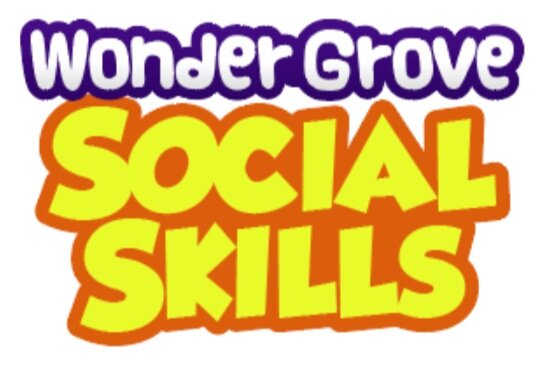Top 5 Social Skills to Address at the Beginning of the Year
The beginning of the year has always been the most crucial time to address social skills, classroom rules, SEL skills, and behavior. But this year, It's hard to overstate the importance of social-emotional learning as students return to a more normal school environment. Stanford education professor Linda Darling-Hammond says,
"I have no doubt that the survival of the human race depends at least as much on the cultivation of social and emotional intelligence, as it does on the development of technical knowledge and skills."
Here are the top five undesirable student behaviors you're likely to encounter after a year out of the typical classroom:
Not Paying Attention—This skill is always of the utmost priority to transition K-2 students into desired classroom behaviors and it’s on the top of teachers’ minds. In fact, our top-viewed video of 2020 was “Pay Attention When the Teacher is Teaching!”
Transitioning kids into school mode can be difficult after a summer of fun. Using an activity that can bridge between summer and school is a great way to get students to pay attention quickly. Students spent all summer immersed in media—YouTube videos, tv shows, and apps often featuring cartoon characters. Using this medium in the classroom works, because it’s something that students are already primed to learn from. Cartoons have been used in the classroom for decades (hello, School House Rock has been teaching kids the meaning of conjunction for nearly fifty years!), and research shows that students form relationships with animated characters, and then those relationships lead to even deeper learning for students.
Violating Personal Space
How many times have you said, “Keep your hands to yourself”? It probably feels like, and may well be, hundreds of times. Students in K-2 need frequent reminders that they shouldn’t be in anyone else’s personal bubble. WonderGrove has an animation for that (that’s been viewed nearly 6 MILLION times on YouTube!). Our animations feature lovable characters making common mistakes and learning the correct way to behave. The ways in which issues are handled in the animation make it so that there is no shaming, only learning!
Outbursts in Class
On one hand, it’s nice to have students that are so engaged in the lesson they forget to raise their hand before responding. On the other hand, it is disruptive to other students’ learning to have their classmates shouting out. Getting students in the habit of respecting you, and their classmates, is essential at the beginning of the year.
Not Working Well Together
Students who are entering school for the first time, or students that spent the better part of their kindergarten and first grade years behind computers or six feet apart, may not have experience working closely with others. It’s all the more important that the ability to get along with classmates, build relationships, and work on a team is addressed directly this year. Students can learn skills such as “Always Be a Good Sport,” “Work Together on a Team,” “Sharing with Others,” and more with WonderGrove videos. Of course, the videos are just a jumping-off point for working well together. Your students can then work in groups on the printable extension activities. Between fluency passages, math activities, language activities, coloring pages, active learning, and printable books, it is easy to group students depending on the skill and ability level you’d like to address while helping them build teamwork skills at the same time.
Not Following Classroom Rules
At the heart of most disciplinary situations is the root that students are not following the rules of the classroom you set down at the beginning of the year. It is important to be explicit in your rules and review them frequently throughout the first 8 weeks of school. It isn’t enough to say “respect each other” as “respect” looks different to each student depending on their background knowledge and experiences. For example, “respect each other” can be broken down into many skills such as “Use Polite Words,” “Keep Your Hands to Yourself,” and “Respect Other People’s Stuff” (all of which are addressed in a WonderGrove video by the way). Acknowledging that students come from all different experiences, ability levels, and norms and then being explicit in what you expect in the classroom is the only way to ensure that expectations are shared among all stakeholders.
WonderGrove Social Skills' animated lessons specifically address each of these issues with ease! Videos such as "Keep Your Hands to Yourself," "Pay Attention When the Teacher is Teaching," "Raise Your Hand and Wait to Be Called On," "Sharing with Others," "Always Be a Good Sport," and "Stand Quietly in Line" model the desired behavior and explain why it is important while also entertaining your students. With a WonderGrove Social Skills subscription, you'll be able to access dozens of SEL videos that will allow you to save time in your planning and build lifelong skills in your students.
WonderGrove Social Skills has over seventy animated social stories with concrete social-emotional skills. The digital library of social-emotional skills videos is rounded out by over 225 MORE animated lessons modeling health, nutrition, history, vocabulary, letters and numbers, holidays, and over 2000 printable extension lessons aligned with CCSS standards. Bring WonderGrove Social Skills to your classroom here.
